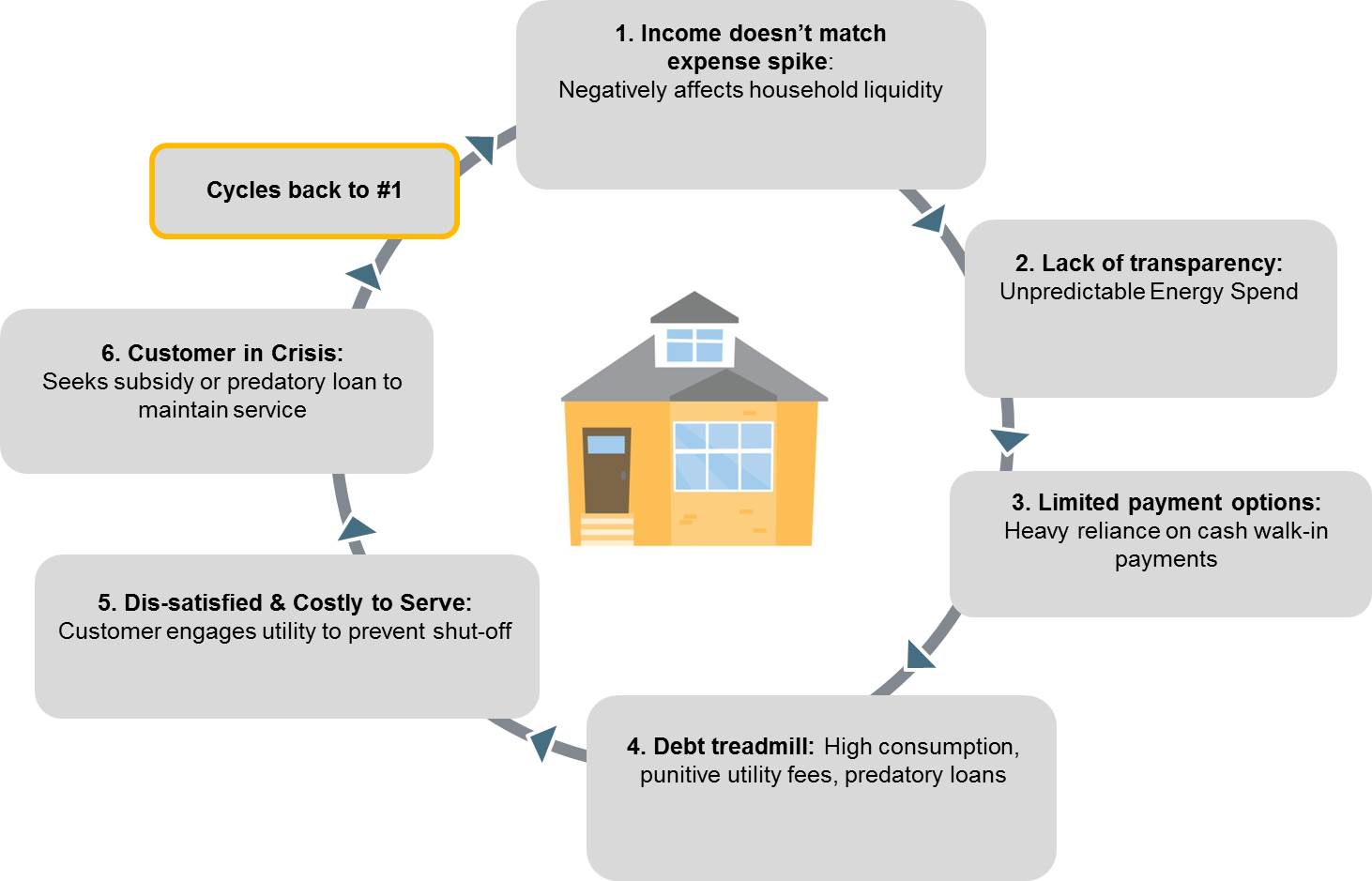To Stay Competitive, Utilities Must Better Serve Low-Income Customers
In the midst of the rapidly changing energy sector, utilities have an enormous opportunity to modernize their services to all ratepayers, but in particular, to their large population of traditionally underserved low-income customers. Energy efficiency investments, especially when directed at low-income communities, reduce costs to utilities, thereby lowering rates for all customers.
As utilities transform with the energy landscape, it is imperative that these changes focus on low-income households, which will benefit utilities by easing demand on the grid, increasing on-time payments, and reducing expenditures on debt collection and shutoffs.
Elevate Energy CEO Anne Evens makes this case in an article published in The Electricity Journal, entitled “The Utility of the Future and Low-Income Households.”

While Illinois and some other states have programs in place to help consumers pay overdue bills, finance efficiency upgrades, and save money through time-variant pricing, more is needed.
The article calls for:
- Boosting investments in energy efficiency programs, particularly targeting multifamily buildings for upgrades. This includes expanding outreach and adopting auto-enrollment to encourage participation in weatherization programs.
- Extending access to the “smart grid.” A 2014 report found that 65 percent of low-income survey respondents had not heard the term “smart meter,” suggesting a need for education. Adopting text message alerts and paper communications could allow consumers without Internet access to track usage.
- Expanding access to renewable energy through community solar projects. Elevate Energy is a partner in a project to advance community solar projects in Cook County.
- Increasing the use of on-bill financing and incentive programs for efficiency investments, and helping consumers manage bills with incentives for timely payments, flexible payment cycles, energy savings accounts, and text messaging.
Progress is being made towards some of these suggestions around the country. Elevate Energy received an Innovation Challenge grant from the University of Chicago Energy & Environment Lab to fund a one-year pilot to use the smart grid to provide energy efficiency tips and innovative financial tools to help low-income households reduce usage, increase on-time bill payment, and escape the debt cycle that leads to service shut-offs.
The Obama Administration’s Clean Power Plan, which sets a 2030 deadline to cut emissions from existing power plants nationally by 32 percent from what they were in 2005, promises to be a catalyst for more innovation. The Clean Power Plan was stayed by the U.S. Supreme Court on February 9, 2016, while it considers a legal challenge, but many states and utilities are proceeding to implement its provisions anyway. Elevate Energy strongly backs a section of the Clean Power Plan called the Clean Energy Incentive Program, which aims to “level the playing field” by offering special incentives for states to make early investments in energy efficiency measures in low-income communities.
In Illinois, action is still needed at the state level. Elevate Energy is among more than 200 businesses and organizations that belong to the Illinois Clean Jobs Coalition, created in early 2015 to promote legislation that would strengthen renewable energy and efficiency standards.
“Low-income households have traditionally been underserved by customer-facing utility programming, a lost opportunity considering the value to both the customer and the utility,” Evens writes. The recommendations Evens outlines “will encourage the development of financially stable, environmentally healthy, and increasingly resilient, satisfied, and engaged low-income communities.”



